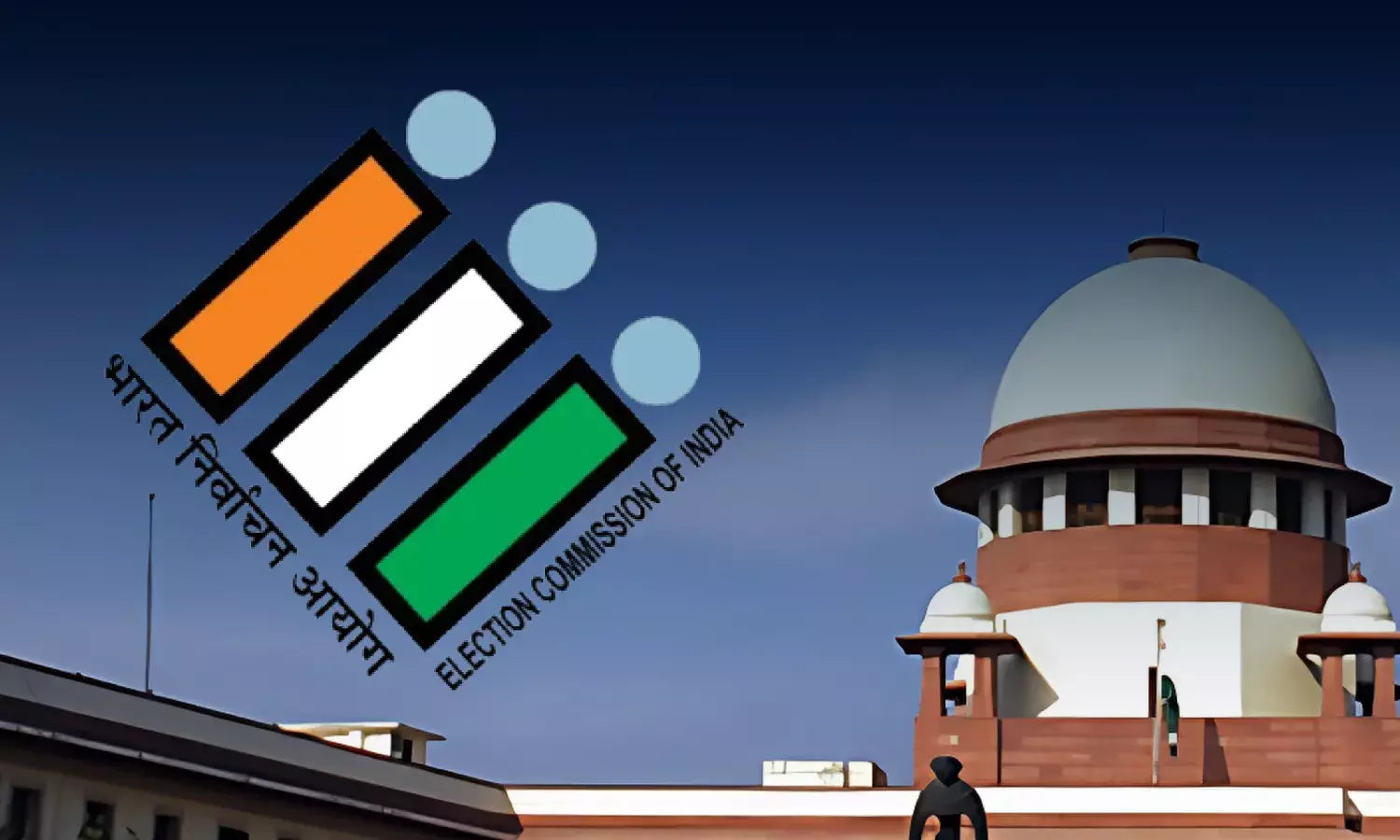Aadhaar Cannot Be Used As Proof Of Citizenship: ECI Tells Supreme Court
The ECI made the submission during the supreme court hearing of petitions challenging the Special Intensive Revision (SIR) of electoral rolls in Bihar.

Supreme Court
The Supreme Court is hearing a batch of petitions today challenging the Election Commission of India’s (ECI) June 24, 2024 order directing a Special Intensive Revision (SIR) of the electoral rolls in Bihar. During the course of the hearing, the ECI told the Court that the Aadhaar Card cannot be used as proof of citizenship.
A Bench of Justice Sudhanshu Dhulia and Justice Joymalya Bagchi observed, “There is no question that the issue before Court is an important issue that is close to the very root of the democracy. You know it’s a right to vote.”
Referring to the upcoming state polls, the Court also remarked, “That's why the question is why you are making this exercise relatable to an election coming in November." The Court added that the exercise should have been done for the whole country, independent of any election.
Appearing for the ECI, Senior Advocate Rakesh Dwivedi maintained that the Commission had acted within its powers, stating, “Aadhaar Card cannot be used as proof of citizenship.” He added, “Even the Representation of the People Act says that one has to be a citizen to vote.”
When asked whether voters whose names are excluded during the revision would be granted a hearing, he submitted, “All the procedure will be followed, all principles of natural justice will be followed.” He clarified that the Commission would submit the draft rolls for Court scrutiny before final notification, “We will show it before it is finalized.”
Justice Dhulia, however, cautioned, “You know that once the list is completed and notified, no Court will touch it.”
Senior Advocate Gopal Sankaranarayanan, appearing for one of the petitioners, Association for Protection of Civil Rights (ACPCR), pointed to the documentation requirements, stating, “They’ve said that the Special Intensive Revision (SIR) will be completed in a strict 30-day timeline, and only 11 documents will be accepted. Even voter ID won’t be considered, and they’re asking for parents’ documents too.”
He added that while those on the 2003 electoral roll need only submit a form, others, regardless of having voted in multiple elections, must re-establish eligibility, calling it an “artificial distinction” that has no legal basis. “This exercise is arbitrary and discriminatory. The guidelines exempt certain classes of people from the revision, creating categories without any legal basis”, he added.
When Justice Bagchi queried whether Aadhaar was excluded contrary to existing law, “So you're saying that under the parent Act, Aadhaar is a valid identity document, and removing it as proof contradicts the scheme of the Act?” Sankaranarayanan responded, “Yes.” He stressed, “I'm not saying Aadhaar proves citizenship for someone not on the roll. But for those already on the roll, it serves as proof of identity authentication.”
Senior Advocate Kapil Sibal, appearing for RJD MP Manoj Jha, argued that the burden of proving citizenship cannot be reversed, stating, “The burden is not on me to prove citizenship. Before they remove me from electoral roll they have to show that they have some document in their possession that proves that I am not a citizen.” He criticised the Commission’s approach: “Please appreciate what they are doing. They are saying if you don't fill a form you will not be allowed to vote.”
When Justice Dhulia asked if this could mean large-scale voter exclusion, Sibal confirmed, “Yes.” He cited data from a state survey showing low documentation coverage among residents, submitting, “Only 2.5% have passports, 14.71% have matriculation certificates, and negligible numbers have forest rights or residency certificates. Birth certificates, Aadhaar, and MNREGA cards are excluded.”
Appearing for PUCL, Senior Advocate Abhishek Manu Singhvi said, “Disenfranchising even a single eligible voter disrupts the level playing field, strikes at democracy, and directly impacts the basic structure.” The Bench responded, “We agree with you on that.” Singhvi questioned the legal basis of the SIR, stating that the procedure amounted to “pre-disqualification” based on citizenship, which falls outside the Election Commission's domain. “This is absolutely an exercise of doing citizenship screening”, Singhvi added.
Advocate Vrinda Grover, also representing one of the petitioners, stated that the SIR disproportionately affects vulnerable communities such as migrants, transgenders, and orphans. She submitted, “These vulnerable groups don’t possess such documents, the authorities' own data shows this.”
The petitions, filed by RJD MP Manoj Jha, Association for Democratic Reforms (ADR), People's Union for Civil Liberties (PUCL), activist Yogendra Yadav, Trinamool MP Mahua Moitra, and former Bihar MLA Mujahid Alam, challenge the legality, timing, and process of the SIR. Moitra’s petition terms the exercise “illegal, unconstitutional, and ultra vires,” citing violations of Articles 14, 19(1)(a), 21, 325, and 326 of the Constitution, and the Representation of the People Act, 1950.
In her plea, Mahua Moitra describes the SIR as illegal, unconstitutional, and beyond the powers conferred upon the ECI, arguing that it violates Articles 14, 19(1)(a), 21, 325, and 326 of the Constitution, along with provisions of the Representation of the People Act, 1950, and the Registration of Electors Rules, 1960.
The petition states that the revised procedure imposes an impermissible burden on existing voters, many of whom have voted in prior elections, to prove their eligibility through documents establishing their own or their parents’ citizenship. It says that the order can lead to large-scale disenfranchisement of eligible voters in the country, thereby undermining democracy and free and fair elections.
The Supreme Court is continuing to hear the batch of cases.
Cause Title: Association For Democratic Reforms & Ors. V. Election Commission of India (W.P.(C) No. 640/2025)


